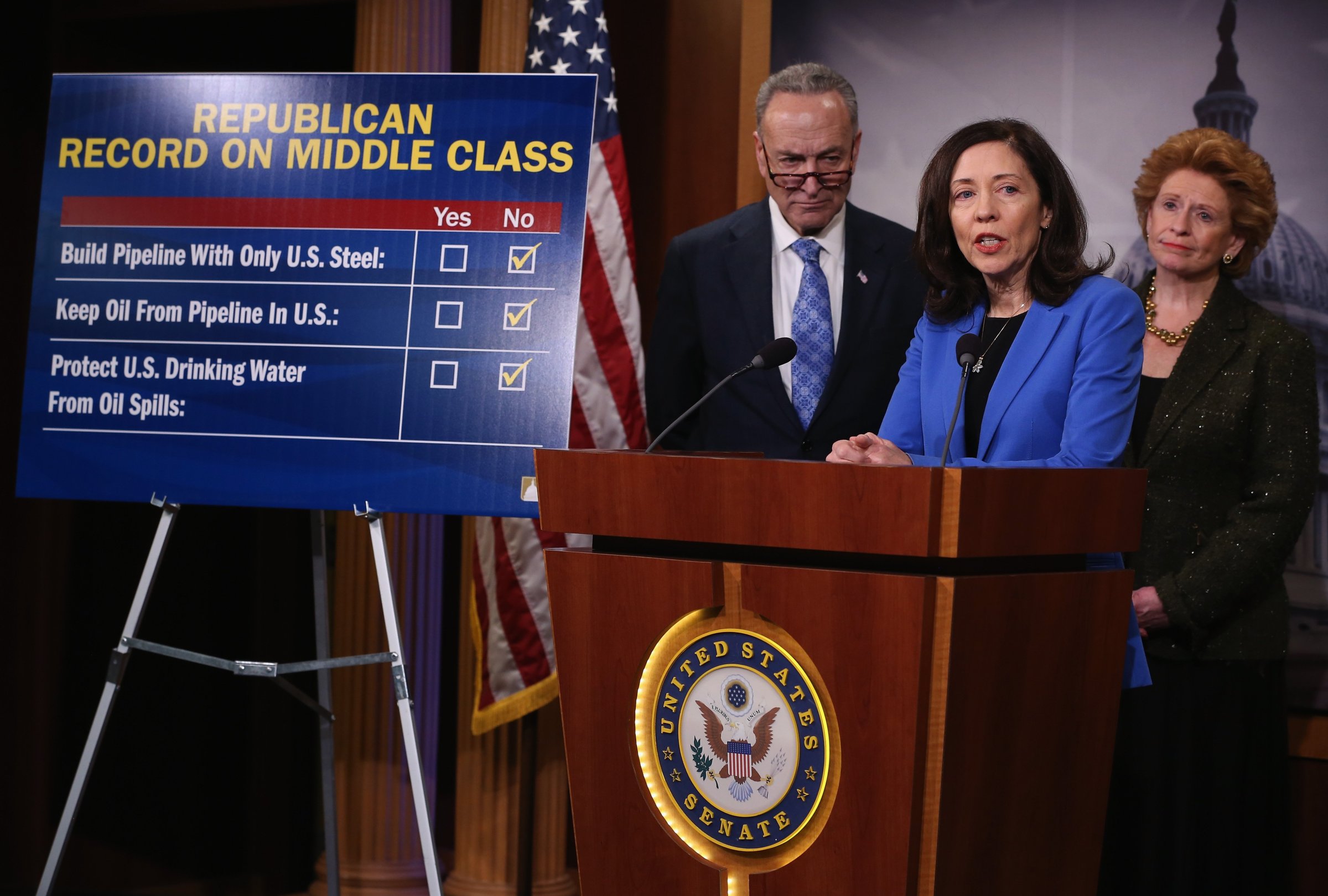
The new Republican Congress is on the verge of passing a bill to build the controversial Keystone oil pipeline, helping connect the Alberta tar sands in Canada to the Gulf of Mexico.
After debating the environmental and economic issues surrounding the 1,179 mile pipeline for years, the Senate passed a bill Thursday that would authorize construction of a pipeline linking the Canadian tar sands with Gulf Coast oil refineries. It’s the first politically significant bill that has passed the Senate since Republicans regained a majority there this month.
The bill, which passed 62 to 36, was one of several top priorities for Senate Majority Leader Mitch McConnell and House Speaker John Boehner, advancing despite a White House veto threat over three weeks ago. The House will now decide whether it will take up the Senate bill, or move to go to conference. The President has vowed to veto the final bill.
The way in which it passed through the Senate—with more than double the number of amendments considered last year—provoked McConnell to flash a rare smile during a speech on the chamber floor Thursday morning.
“The debate over these American jobs has shown that with bipartisan cooperation, it’s possible to get Washington functioning again,” said McConnell. “This debate is also providing that the new Congress is ready to work and work hard for the middle class, even in the teeth of opposition from special interests.”
Republicans have often used the $8 billion pipeline to bash the Obama administration for catering to Washington special interests over middle class jobs; in his 2012 presidential run, Mitt Romney said he would build it “if I have to myself.” Polls show that nearly 60% of Americans agree with the GOP’s position on the TransCanada six-year project.
Senate Democrats brought up more than a few amendments to trip up their Republican colleagues. One brought up earlier in January—“To express the sense of the Senate that climate change is real and not a hoax”—passed with only Mississippi Sen. Roger Wicker voting “nay,” as some skeptics of manmade global warming like Oklahoma Senator Jim Inhofe simply retorted that the climate has “always changed.”
A Republican-introduced amendment specifying that humans play some role in climate change was defeated by one vote, but gave 15 Republicans, including some 2016 swing-staters like New Hampshire’s Kelly Ayotte, Ohio’s Rob Portman and Pennsylvania’s Pat Toomey, the chance to have their views marked on the record.
Republicans and anti-Keystone Democrats lobbied the same middle class vs. special interest critique and used the same State Department report to prove their points. That report shows that the pipeline would indirectly and directly support around 42,000 jobs over two years, but only employ around 50 people once the pipeline was built and functional.
“Right out of the gate the first act of the new Republican majority was to pass a special interest bill that’s a giveaway to foreign oil and steel companies that do nothing to benefit the American people,” said New York Sen. Chuck Schumer, a member of the Democrats’ leadership team. “Republicans are calling this a jobs bill, but the fact is that the Keystone [pipeline] would create only 35 permanent jobs—a drop in the bucket. A fried chicken franchise creates about as many jobs.”
The years-long, pick-your-own-statistics messaging adds to the point that the Keystone debate has taken on a political significance greater than its actual one. Its long-term economic significance and environmental impact is minimal. But for Congress and the Obama administration, which has also spun off officials to work for groups on both sides, the Keystone pipeline debate has risen to become one of the best-known symbols in the fight over the environment and economy.
More Must-Reads from TIME
- Donald Trump Is TIME's 2024 Person of the Year
- Why We Chose Trump as Person of the Year
- Is Intermittent Fasting Good or Bad for You?
- The 100 Must-Read Books of 2024
- The 20 Best Christmas TV Episodes
- Column: If Optimism Feels Ridiculous Now, Try Hope
- The Future of Climate Action Is Trade Policy
- Merle Bombardieri Is Helping People Make the Baby Decision
Contact us at letters@time.com